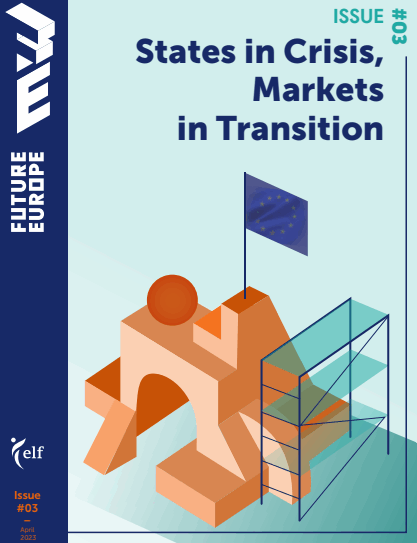[FEU Journal 3] States in Crisis Markets in Transition
The third issue of the Future Europe Journal is dedicated to exploring how Europe has been transitioning to new modes of functioning due to its multifaceted crisis management. In their contributions, our authors reflect on two interrelated dynamics. On the one hand, the papers study how the European markets and industries adapted to new challenges and demands. On the other hand, the authors focus on innovative instruments and practices that policymakers could utilise to navigate crises and out-of-the-ordinary scenarios on the EU level. Both angles shed light on the long-term transformations and trajectories to which the European states, markets, and the Union as a whole are heading.
